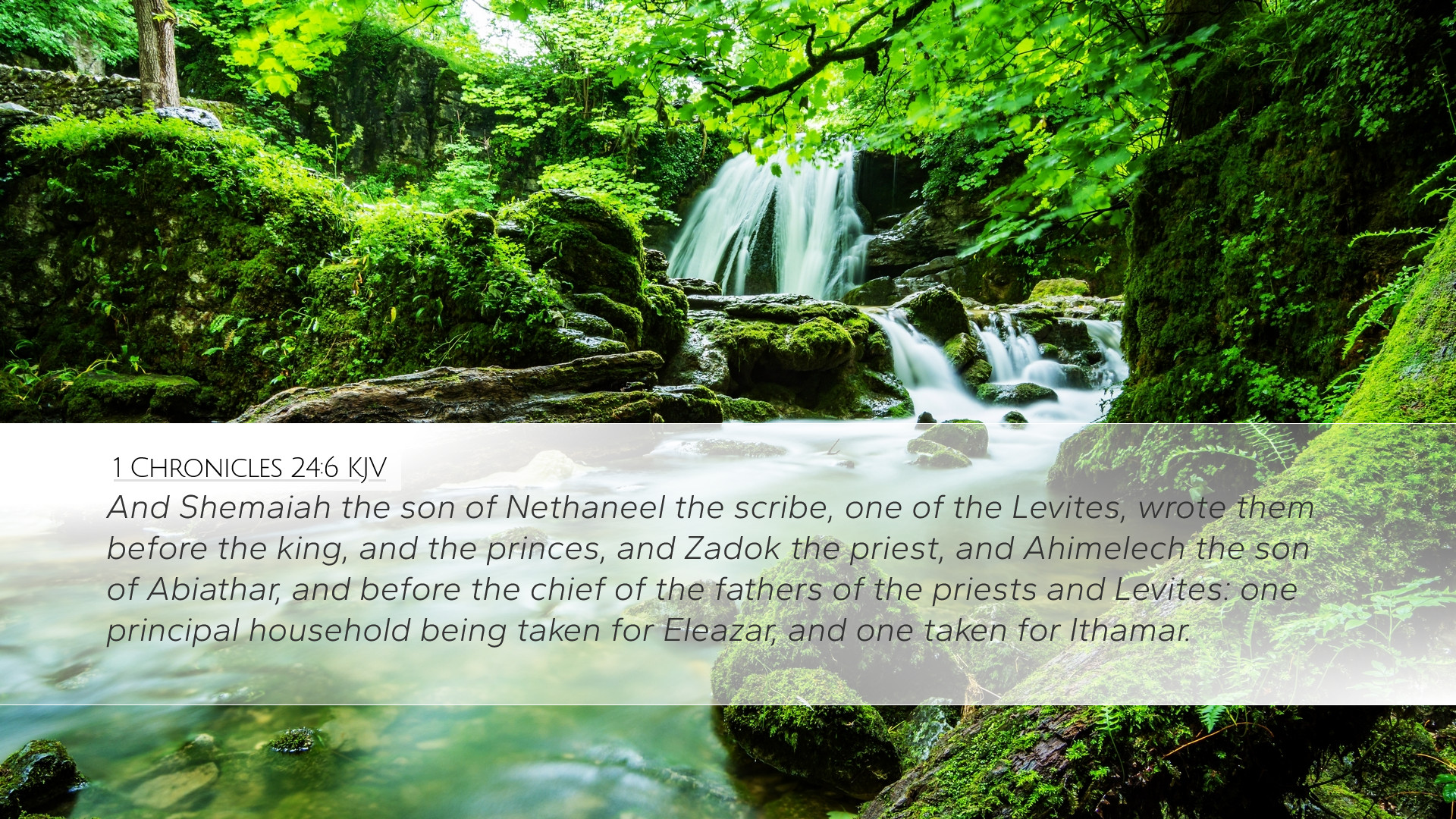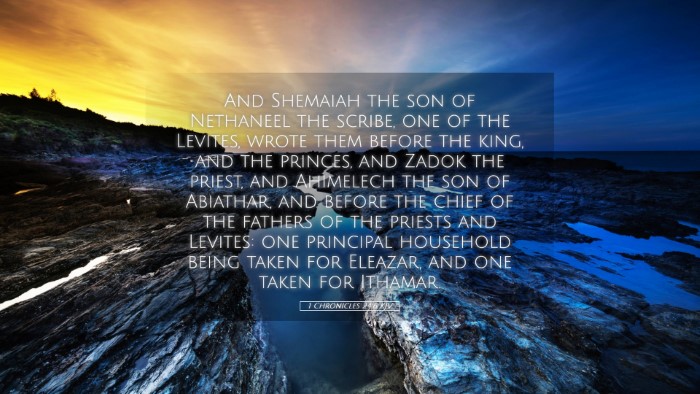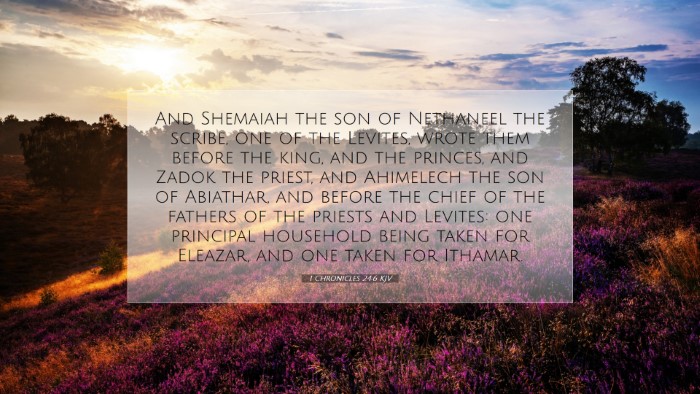Commentary on 1 Chronicles 24:6
Bible Verse: "And Shemaiah the son of Nethanel the scribe, one of the Levites, wrote them before the king, and the princes, and Zadok the priest, and Ahimelech the son of Abiathar, and before the chief of the fathers of the Levites." (1 Chronicles 24:6, KJV)
Introduction
This verse forms part of the genealogical record in the Books of Chronicles, focusing on the organization of the Levitical priesthood. It highlights the role of Shemaiah, a Levite scribe, in the arrangement and documentation of the priestly divisions. This commentary seeks to summarize theological insights and practical applications from various public domain commentaries, aiding pastors, scholars, and students in deeper understanding.
Exegesis and Context
The context of 1 Chronicles is crucial for understanding the significance of this verse. The Chronicler aims to present a theological narrative concerning Israel's history, focusing heavily on the Levitical priesthood and worship practices.
Role of Shemaiah
Matthew Henry emphasizes Shemaiah's importance as the scribe who documented the priestly divisions. His function as a scribe highlights the significance of maintaining records and the role of written authority in establishing priestly order.
The Levitical Order
According to Adam Clarke, the mention of the Levitical order signifies God’s intention for worship and service in the temple. The division of priests into courses, as documented by Shemaiah, ensured organized worship and the regular fulfillment of priestly duties.
Theological Implications
- God's Sovereignty: The meticulous organization reflects the sovereign plan of God in appointing specific roles for service and worship, representing divine order in the community.
- Historical Accuracy: Albert Barnes points out the importance of these records for the historical context of Israel, evidencing the faithfulness of God in preserving a lineage entrusted with sacred responsibilities.
Insights from Public Domain Commentaries
This section amalgamates key insights from noted commentaries, distilled into meaningful observations concerning leadership, structure, and divine purpose.
Importance of Documentation
Matthew Henry remarks that the recording of these priestly divisions serves as an essential reminder for contemporary religious leaders about the importance of maintaining order and accountability in church leadership.
Unity and Diversity in Leadership
Shemaiah’s role as a scribe among leaders such as Zadok and Ahimelech teaches that diverse roles within spiritual leadership coexist to fulfill God's purpose. Albert Barnes notes the collaborative effort among the leaders, crucial for sustaining the welfare of the community.
Priestly Responsibility and Regeneration
- Holy Calling: The priests’ primary duty was to mediate between God and Israel, emphasizing the sacredness of their role.
- Generational Responsibility: Adam Clarke discusses the ongoing need for spiritual regeneration and the importance of each generation recognizing its responsibility to uphold the covenantal relationship with God.
Application for Today's Church
The principles drawn from 1 Chronicles 24:6 are profoundly relevant for contemporary church life:
Leadership Organization
Church leaders are reminded to adopt clear and structured systems for governance, much as the Levites were organized into divisions. This aids transparency and effectiveness in ministry.
Record Keeping and Accountability
As Shemaiah documented the Levitical orders, churches today contend with the importance of record-keeping that promotes accountability and stewardship, central to the integrity of church operations.
Encouragement of Diverse Gifts
The inclusion of varied roles within the leadership structure reflects God’s design. Pastors and church leaders should encourage the utilization of diverse spiritual gifts for the edification of the body of Christ.
Conclusion
In summary, 1 Chronicles 24:6 encapsulates lessons on divine order, leadership, and the priestly mission. As noted by Matthew Henry, Albert Barnes, and Adam Clarke, the verse reinforces the necessity for careful documentation and the responsible exercise of leadership that seeks to honor God in worship and service. These timeless principles can guide today’s church in fulfilling its mission amidst contemporary challenges.


